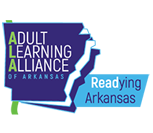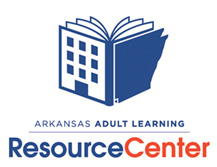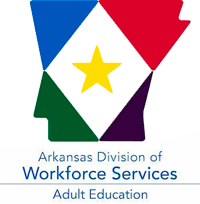There is no shortage of research supporting the value of goal setting. Whether it is related to your health, your job, or learning, goal setting is an important part of the process.
Literacy Councils in Arkansas also value goal setting because all of our students are different. They come to us with different backgrounds, abilities, and plans in life. When a student enrolls, they may say they want to learn to read or improve English or prepare for the GED, but there is almost always a more powerful motivator – the student’s true goals. Those are things like to get a better job, read a book with their child, or pass the driver’s license test. Sometimes, as students learn and their confidence improves, they develop new goals.
Helping students identify those goals, and measure their progress towards them is a powerful tool in helping them learn. These goals can help a tutor develop relevant lessons and encourage the learner when they are frustrated.
You may be familiar with these, but before we jump into tips for using goal setting with adults here is a reminder, here is one memory device for goal setting.

Tips For Goal Setting With Adults
Monitor Progress Regularly
Setting the goal is only the first step. Make discussing the goal and checking in on progress part of your regular routine with students. If it is a huge goal, break it down into smaller goals, and monitor those rather than the larger goal. As much as possible, make this visible. Checklists, charts, or even just keeping a list of accomplishments in the front of a notebook can help a student truly see progress. Keep in mind that many adults have faced obstacles and discouragement often. Finding ways to celebrate even small gains can help overcome the mental barriers learners face.
Evaluate Needed Changes
We all live in a fast paced world. Goals may change. If the student’s original goal was to get a job, and a few months in, you learn they need to pass the driving test, it may be wise to pause one goal in favor of another. You may also realize the goal the student set isn’t as important to them as it used to be. A student also may have an unreasonable timeline or encounter a set back, such as illness. Being flexible and helping students be reasonable with themselves is important.
Prioritize
Depending on the ambitions or needs of the student, they may come with a lot of goals. By helping students prioritize and focus on goals in a meaningful order. Goals are a critical part of motivation, but too many goals can become overwhelming for students AND tutors. Discussing how the student wan0ts to prioritize goals also helps you connect with each other and understand the best ways to keep learning relevant.
Encourage Self Reflection
In the beginning, the tutor may need to model reflecting on the goal and progress. If so, use positive phrasing and focus on the student’s thoughts. Over time, the student should be reflecting on their progress and the value of their own goals.
Connect Student Work To Student Progress
Point out to the student how their lesson or study habits are building towards their goal. An example might be, “I know it feels like you aren’t getting to your goal, but you haven’t missed a lesson in 6 weeks. That commitment will pay off.” Another example is, “This lesson is on verbs. Using verbs correctly will be an important part of written assignments in your later coursework on your GED.”
Identify Obstacles
Early on in the process, discuss some obstacles that may arise. Talking this through beforehand not only helps you both prepare, it also opens the door for honest conversation as the obstacles arise. Many learners do not realize that everyone comes up against obstacles or makes mistakes and this conversation normalizes facing barriers and dealing with them head on. Talking this through early shows them that you are there to help and okay with them sharing these struggles with you.
What Do I Do If My Students Says They Don't Have Any Goals?
Goal setting can be new for some students or can feel overwhelming. Depending on the traumas or negative learning experiences of the student, they may be hesitant or embarrassed about their goals and needs. First, work on building trust and connection with the student. Then, here are some questions that can help your student identify their goals.
- What job or jobs sound interesting to you?
- In 1 year, how would you like your life to be the same and different? 5 years?
- What is one reason you signed up for this class?
- What is one part of your daily life that frustrates you?
- What types of things would you like to be able to read? Or What situations would you like to be able to use English in?
- What is one thing you think I could help you with?
Don't Forget!
As a tutor, you are likely the representative of your literacy organization who sees the student most. Be sure to communicate with the staff of your council when students set a new goal or accomplish even a small part of the goal!







